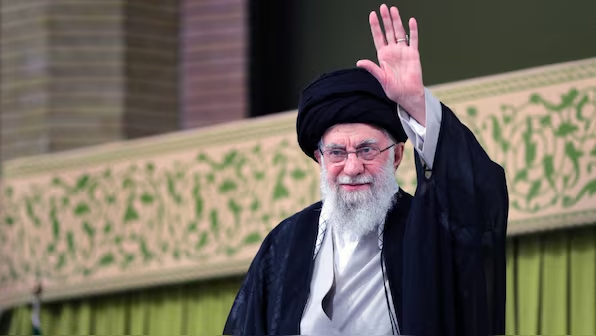Ceasefire or mirage? US role under scrutiny as Israel-Iran conflict deepens

Iran’s supreme leader, Ayatollah Ali Khamenei, faces threats from Israel.
The ceasefire between Israel and Iran, hastily declared and prematurely celebrated, has quickly descended into confusion and renewed aggression—casting doubt on its feasibility and exposing the fragile power dynamics shaping the region. At the center of the diplomatic chaos is former U.S. President Donald Trump, whose attempt to broker peace is now drawing criticism as both premature and politically motivated.
Trump had proudly announced the ceasefire as a major foreign policy breakthrough, declaring that his behind-the-scenes efforts had succeeded in persuading both Israel and Iran to stand down after weeks of escalating missile exchanges and retaliatory strikes. The deal was reportedly backed by key regional actors including Qatar and Jordan, and was initially welcomed by the international community as a potential off-ramp from a devastating full-scale war.
However, the optimism was short-lived. Within hours of the announcement, both sides began trading accusations of violations. Iran fired missiles into northern Israel, targeting military installations, while Israel responded with fresh airstrikes on suspected Iranian-linked positions near Tehran. In a stunning reversal, Trump lashed out at both countries, expressing frustration over their actions and declaring that “they don’t know what the f— they’re doing,” according to widely circulated footage from a rally speech.
The episode has once again highlighted the complex and often contradictory role of the United States in Middle East geopolitics. While Washington continues to provide military and intelligence support to Israel, it also styles itself as a broker of peace. This dual identity has left Iran deeply skeptical of any ceasefire terms emerging from Washington’s orbit. Tehran has insisted that any meaningful truce must involve a halt to Israeli aggression and a rollback of U.S. military presence in strategic zones across the Gulf.
READ ALSO
Strait of Hormuz: What will happen if Iran shuts global oil corridor?
Who’s Ayatollah Ali Khamenei? Iran’s supreme leader under global scrutiny
Israel-Iran war: 330,000 flee Tehran as oil prices drop 4.2%
Israel vs Iran war: Origin, main causes, other things to know
Ebrahim Raisi: What to know about Iran’s president who died
Iran’s attack on US military base in Qatar: What you should know
At the same time, Trump’s handling of the announcement—without a clear verification mechanism or public endorsement from both parties—has drawn criticism from foreign policy analysts who view it as more performative than practical. The ceasefire, they argue, was launched more to score political points than to bring lasting stability to the region. While Trump claimed he had “personally stopped the war,” the continued violence on the ground has told a very different story.
In Israel, government officials have offered mixed reactions. While Prime Minister Benjamin Netanyahu initially welcomed the ceasefire to ease international pressure and buy time for strategic recalibration, he later reiterated that Israel reserves the right to respond to any threat. Iranian leadership, on the other hand, has framed the ceasefire as an American charade designed to protect Israeli interests while sidelining Iran’s regional influence.
Meanwhile, the humanitarian toll continues to rise. Aid convoys into southern Lebanon and western Syria remain limited due to ongoing skirmishes. Civilians in border towns have begun fleeing en masse, and fears of broader destabilization loom over Iraq and the Gulf states. The ceasefire, such as it was, now appears more like a temporary media headline than a substantive shift toward peace.
As pressure mounts on the United States to take a firmer stance, questions about the feasibility of any future truce remain unanswered. Can a sustainable ceasefire be achieved in a conflict so deeply rooted in ideological, political, and territorial grievances? And can Washington credibly lead that effort while maintaining such an openly partisan alliance with Israel?
For now, the ceasefire drama has only reaffirmed how fragile peace remains in the Middle East—and how easily diplomatic applause can be drowned out by the sound of missiles in the sky.

